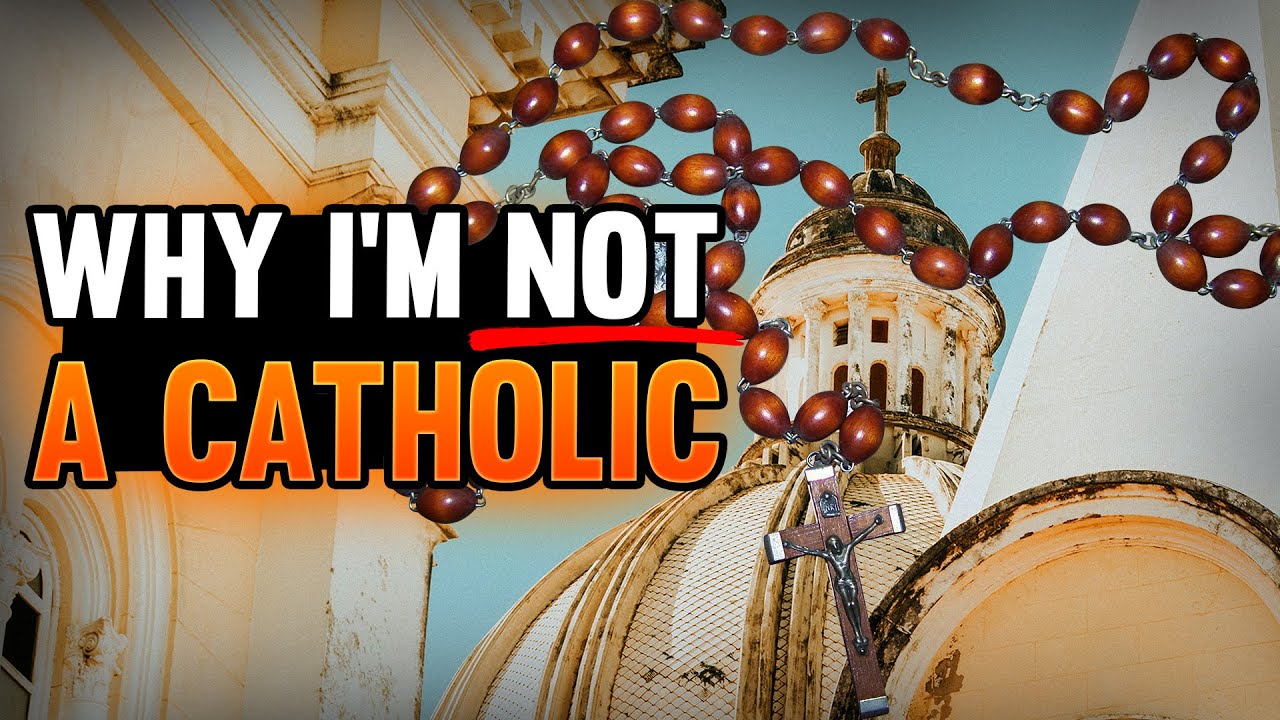Mysteries of the Church: Christian Denominations
Summary
TLDRThis episode of 'Mysteries of the Church' explores the historical divisions within Christianity, from early New Testament disputes to the Great Schism of 1054 and the Protestant Reformation. It discusses how cultural, political, and theological differences led to the formation of various denominations, including Catholic, Orthodox, and Protestant churches. The program also touches on the impact of the Crusades, the rise of nationalism, and the Council of Trent. It emphasizes the ongoing need for dialogue and unity among Christians despite their differences.
Takeaways
- 📖 Christianity was meant to be unified, but throughout history, divisions have led to different branches of the faith.
- 📝 The early church fathers envisioned a unified Christian community, but even in the New Testament, divisions were beginning to emerge.
- ✝️ Three main branches of Christianity emerged: Catholic, Orthodox, and Protestant, each with their own beliefs and structures.
- 🔍 The issue of authority, particularly the role of the Pope, remains a major point of division within Christianity.
- 📜 The Great Schism of 1054 between the Roman Catholic and Eastern Orthodox Churches was rooted in political, cultural, and theological differences.
- ⚔️ The Crusades exacerbated the division between the Eastern and Western churches, particularly after the attack on Constantinople.
- 📅 The Protestant Reformation in the 16th century, led by figures like Martin Luther, further splintered Western Christianity, challenging Catholic authority and practices.
- 🏛️ Nationalism and political independence contributed to the rise of Protestantism, with many regions breaking away from the control of the papacy.
- 💔 Protestantism continued to splinter into various denominations, often driven by differences in biblical interpretation and authority.
- 🕊️ Despite historical divisions, there is hope for greater unity among Christians, though significant theological and structural challenges remain.
Q & A
What is the main reason for the division among Christians according to the script?
-The main reason for the division among Christians is disagreement over the interpretation of the Bible and the nature of the scriptures, which has led to endless division and confusion among Jesus's followers.
What is the significance of the year 1054 in the history of the Christian Church?
-The year 1054 is significant because it marks the Great Schism, which was a severe split between the Eastern (Greek Orthodox) and Western (Roman Catholic) branches of the church, largely due to political and cultural differences.
How did the Crusades contribute to the division within Christianity?
-The Crusades added a complicating factor to the division within Christianity, especially when they attacked Constantinople, which created a barrier that was very difficult to overcome.
What is the role of the Pope in the Catholic Church according to the script?
-The Pope, as the bishop of Rome, is seen as having a unifying authority with special judicial authority to decide questions that are conflicted at other levels of the church.
What was Martin Luther's stance on the Eucharist?
-Martin Luther changed the celebration of the Eucharist to the vernacular language and began to turn the altar around to face the people, indicating a shift from the traditional Catholic practice.
How did King Henry VIII's marital situation lead to the Church of England's separation from the Pope?
-King Henry VIII's marital situation led to the Church of England's separation from the Pope as he asserted the independence of England from the papacy and set himself up as the Supreme head of the Church of England.
What is meant by the term 'Protestant Reformation'?
-The Protestant Reformation refers to the 16th-century movement initiated by figures like Martin Luther, which challenged the authority of the Pope and led to the establishment of Protestant denominations.
What is the significance of the Council of Trent in the context of the Protestant Reformation?
-The Council of Trent was called by the Pope and bishops to address issues raised by Protestantism. It was an attempt by the Catholic Church to respond to the challenges posed by the Reformation.
How did the Peace of Westphalia affect the religious landscape in Europe?
-The Peace of Westphalia established a new political order in Europe, leading to the creation of large sovereign nation-states that imposed a certain tolerance within their borders, reducing religious conflicts.
What is the current state of relations between different Christian denominations as described in the script?
-The current state of relations between different Christian denominations is characterized by mutual tolerance, with ongoing dialogue and efforts towards unity, although full communion has not yet been established due to historical, theological, and structural differences.
Outlines

Этот раздел доступен только подписчикам платных тарифов. Пожалуйста, перейдите на платный тариф для доступа.
Перейти на платный тарифMindmap

Этот раздел доступен только подписчикам платных тарифов. Пожалуйста, перейдите на платный тариф для доступа.
Перейти на платный тарифKeywords

Этот раздел доступен только подписчикам платных тарифов. Пожалуйста, перейдите на платный тариф для доступа.
Перейти на платный тарифHighlights

Этот раздел доступен только подписчикам платных тарифов. Пожалуйста, перейдите на платный тариф для доступа.
Перейти на платный тарифTranscripts

Этот раздел доступен только подписчикам платных тарифов. Пожалуйста, перейдите на платный тариф для доступа.
Перейти на платный тариф5.0 / 5 (0 votes)






